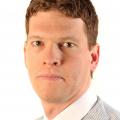
A CORONER has criticised the 'inadequate' and 'slipshod' supervision provided on the day a Bradford teenager drowned while on a rugby trip to France.
Harry Sykes, from Clayton Heights, was on a college trip with the Halifax Elite Rugby Academy (HERA) when he died on September 5, 2018.
The body of the 16-year-old former Queensbury ARLFC player was recovered by divers from Lake Cavayere near Carcassonne in southern France.
The group went on a trip to the beach, with Harry swimming to some rocks in the lake and he had also joined in a game of volleyball at around 2pm in the shallow section of the water.

Recording a narrative conclusion, Senior Coroner Martin Fleming said the organisation and preparation of the visit to the lake was 'inadequate' and 'slipshod'.
“This resulted in confusion and uncertainty with respect to supervision, which was at best, sporadic.
“The lack of head counts showed significant flaws in supervision and enabled Harry to disappear.
"Harry suffered a cardiac event of uncertain origins while swimming and drowned in unclear circumstances when not observed to have been in difficulties."
Mr Fleming added it remains unclear whether, if Harry had been seen and retrieved from the water, there would have been a different outcome.
He said he was unable to find an unlawful killing conclusion, but branded the organisation of the trip to the lake inadequate and slipshod.
Mr Fleming said Gareth and Lee Greenwood's company HERA failed to properly plan the group's trip to the lake and had failed to supervise the boys properly at times on the day.
They had also failed to conduct headcounts of the group, aged between 16 and 19, during the trip to the beach, which they had arrived for at 12.30pm.
The group left the beach at around 5.25pm and later a photograph of the group was taken.
The last time Lee Greenwood saw Harry was when the youngster was throwing a ball around in the shallow section of the water.
The inquest, which lasted for two weeks, previously heard from coroner’s officer Jayne Dawson that the team got back to their hotel at around 6pm, adding it was “only then, following a head count, they realised Harry was missing”.
Lee Greenwood phoned Harry's mother, Natasha Burton, to tell her of her son's disappearance.
The inquest heard the French authorities were contacted and divers were later dispatched, recovering Harry’s body, which was 20 metres from the beach, from the lake that evening on September 5.
His towel and rucksack were found on the beach. He was declared dead at 10.45pm.
Speaking after the conclusion of the inquest, Mrs Burton, said: "We are astounded that, yet again, justice has not been served for Harry.
"This is a tragic and unnecessary death. The coroner himself said the organisation and preparation of this trip was inadequate and slipshod with only sporadic supervision.
"Harry lived, ate and breathed rugby. It was everything to him.
"He was never out of his rugby kit. Harry continues to be missed by all his family. His presence is felt every day."
Mr Fleming told the inquest: "Harry's life was cut short by this terrible tragedy."
Speaking directly to Mrs Burton, Mr Fleming added: "The loss of your son must be so very hard to have to bear."
The HERA group arrived in Carcassonne on September 3, 2018 and Harry was part of the group which took part in an excursion to Carcassonne Castle the following day. They travelled by bus to this visit.
Harry also played in one of two rugby matches that night against a local side, participating in an under-17s clash. The inquest heard he suffered no ill-effects or injuries from playing in the game.
Their trip to the beach took place the following day.
Harry was described as a strong swimmer and his ambition was to become a professional rugby player in the future.
A group of between 30 to 40 members from the HERA touring party were on the beach on the day Harry died, alongside members of the public.
However, no-one saw anyone in any difficulties in the water on the day, the inquest heard.
The inquest heard he excelled at sport and Harry started to play rugby league for Queensbury when he was nine and continued to play the sport for the rest of his life.



Comments: Our rules
We want our comments to be a lively and valuable part of our community - a place where readers can debate and engage with the most important local issues. The ability to comment on our stories is a privilege, not a right, however, and that privilege may be withdrawn if it is abused or misused.
Please report any comments that break our rules.
Read the rules hereComments are closed on this article